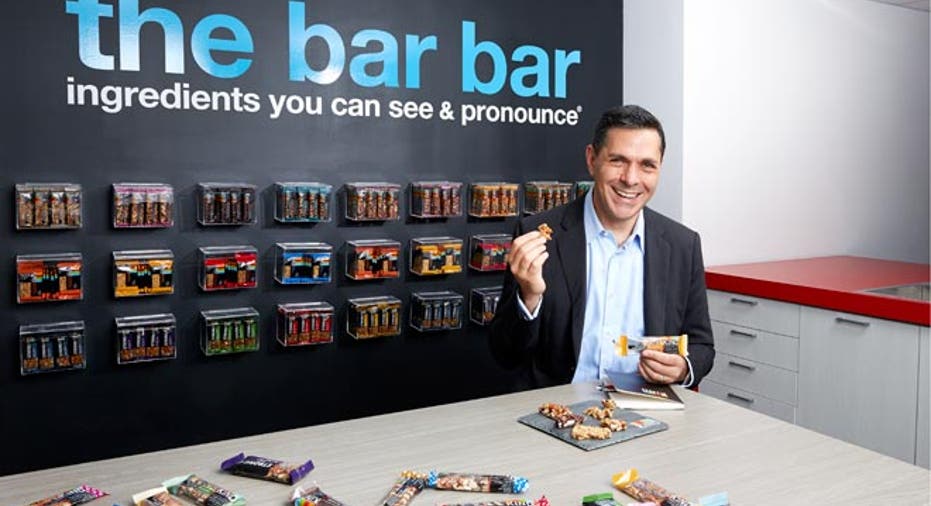KIND Bar Founder: Social Entrepreneur and Leader

Social entrepreneurship is certainly not a new idea, but the concept has gained renewed popularity in recent years. Although the term has been around since the 1950s the notion of social entrepreneurship has evolved.
Today social entrepreneurs seek to combine the best of both worlds by building sustainable profitable businesses that are designed to provide positive social, cultural, and environmental benefits to their communities. Innovative ventures like Warby Parker and TOMS come to mind.
Another venture that has shaped modern social entrepreneurialism is KIND Healthy Snacks. The fastest growing purveyor of healthy snacks in the US also has a social mission of making the world a kinder place by encouraging acts of kindness through a variety of programs known as the KIND Movement.
To learn more about social entrepreneurialism and the KIND Movement I sat down with Daniel Lubetzky, founder and CEO of KIND Healthy Snacks. Lubetzy just released his new book Do the KIND Thing which details how his life journey has shaped him as a social entrepreneur and a leader. The book focuses on the principles of social entrepreneurialism and how businesses can better themselves while bettering the communities around them.
Lubetzky explains that the idea behind modern social entrepreneurism is to be not-only-for-profit. In other words, it’s about having a healthy blend of sound business principles and social consciousness. He didn’t want KIND to be a company that led with its social mission, rather he wanted it to be part of their DNA. The company motto really sums it up well: “Do the KIND thing for your body, your taste buds, and your world.”
One of the earliest and most powerful influences behind Lubetzky’s drive to make the world a kinder place was his father. As a very young holocaust survivor his father made a point of sharing the many acts of kindness he experienced as a young concentration camp prisoner. Lubetzky credits his father’s resilience and attitude to his positive view of those kind acts. He notes that his father “had the strength and disposition to see life in such beautiful ways and always see the best in people,” a perspective that certainly had a lasting impression of Lubetzky, particularly when it comes to his style of leadership.
Lubetzky believes that kindness exists in everyone and the foundation of the KIND Movement begins with his leaders. When it comes to developing his leaders he points out that “we are not here to create kindness, we are here to catalyze it.” During our conversation he shared some of his thoughts on developing KIND leaders in the modern era of social entrepreneurialism.
The AND principle: Lubetzky explains “we very consciously built KIND around being delicious and nutritious” which is one example of what he calls the AND principle. Far too often we are programed to believe in either/or scenarios where there are false choices we have to make. He points out that this is a limiting mindset that he has had to very proactively push back against for most of his career. The problem is that we assume too many givens based on our past experiences and refuse to accept the possibility of marrying ideas that seem to oppose each other such as tasting good and being good for you. Lubetzky strives to teach disciplined thinking and the value of attacking assumptions as a way of combatting this.
Grit: Most successful entrepreneurial ventures are ultimately the result of perseverance. Lubetzky believes grit is something that is formed when you are young and shaped as you grow. He also believes you can build grit through your culture. He notes that encouraging grit starts with praising attitude and effort as much as results. He believes in fostering determined and tenacious fighters who don’t give up. “Attitude is destiny” says Lubetzky, so it’s up to you to decide what that destiny will be by choosing the way you view the world around you. How you handle the journey is far more important than where you ultimately end up.
Transparency: From the glass offices and conference rooms to the clear packaging for all their products to the trademarked tag line “ingredients you can see and pronounce,” transparency is certainly front-and-center at KIND. For Lubetzky transparency isn’t just about what you can see, it’s also what you can say. Lubetzky worries that far too many companies penalize people for speaking their mind, which only encourages people to hold back, limiting the free flow of information. To be successful you have to be yourself and willing to engage in constructive and earnest dialogue. When everyone is open and honest, challenges come to the surface faster and are resolved faster. This can be a competitive edge in a fast moving industry.
Empathy: Lubetzky worries that empathy and kindness are often seen as soft and weak. He emphatically states “it takes strength to be kind, it’s not a weakness.” Leading starts with listening and it takes enormous strength to really listen and have empathy, particularly for those who oppose you. He emphasizes that empathy can be a powerful tool in influencing your team members as it signals acknowledgement of another view as well as respect for their dignity as individuals. At the end of the day it’s about building bridges and connecting with people on a personal level.



















